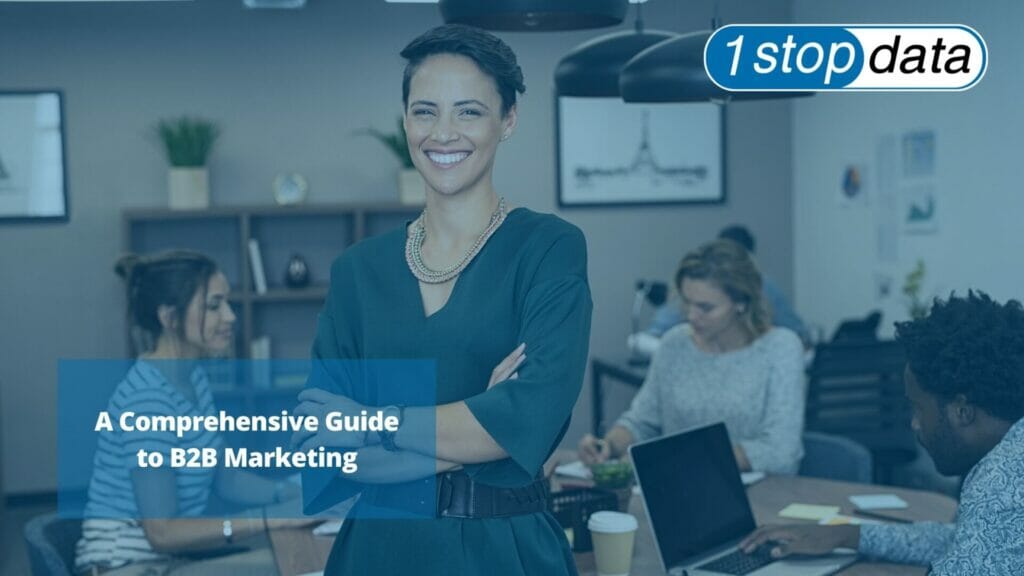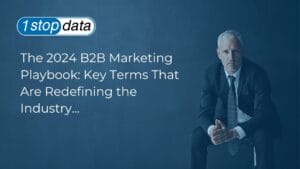A Comprehensive Guide to B2B Marketing:
If you own a business and are looking for ways to grow your bottom line, this article is for you. We will be discussing B2B Marketing (Business to Business) and how it can help businesses increase their profitability. If you’re not sure what B2B Marketing is or what it entails, we’ll give a brief overview of the term as well as its objectives and best practices.
A Comprehensive Guide to B2B Marketing
What is B2B Marketing?
B2B (Business-to-Business) Marketing is a marketing strategy that involves communicating with other companies about your products and services.
What is the Purpose of B2B Marketing?
The objective of B2B Marketing is to promote your products and services to other businesses, onboard new customers and ultimately increase the profitability of your company.
Why is B2B Marketing Important?
B2B Marketing is a term coined to describe the idea that businesses can benefit from creating value for other businesses. For example, if you own a business that manufactures windows and doors, whilst there are benefits of marketing directly to consumers for their homes, there’s also a great benefit marketing the same products and services to property developers who may require the same products on a much larger scale.
Who Invented B2B Marketing?
Whilst it would be hard to identify who specifically coined the phrase, or who was first to define the concept of B2B Marketing, this type of campaign activity was certainly a core focus in 1929 when Ford Motor Company began advertising their production line directly to industrial prospects rather than just targeting consumers who were already looking for cars personally. We can take a leap back even further to the 1870’s when Montgomery Ward & Co. produced a wholesale catalogue, which is considered to be one of the earliest examples of B2B Marketing. Later, c. 1895, John Deere launched “The Furrow” journal for Farmers and is considered to be one of the earlier examples of “content marketing”.
What are B2B Marketing Channels?
There are many ways that marketers reach out to their “prospects” and “customers”. Marketers can target their prospects through a variety of channels, including:
- Direct Mail
- Telemarketing
- Digital Marketing
- Print Advertising
- Media Advertising
- Outdoor Advertising
- Face to Face
Let’s explore them individually:
Direct Mail
The aim of direct mail is to establish new customer relationships by sending information about goods via postal delivery services. This might be a letter, brochure, catalogue, postcard, or similar. While direct mail may be highly effective, it can be quite pricey and has an adverse environmental impact (e.g., tree cutting for paper, pollution and carbon footprint from production and delivery).
Telemarketing
Telemarketing is the practice of communicating with existing and potential clients by phone to discuss goods or services. Telemarketing is often thought of as a proactive outbound approach in which a sales or lead generation team calls cold or warm prospects to further qualify interest and move them through the sales pipeline. Inbound telesales, on the other hand, refers to when your team takes inquiries from interested prospects before selling, cross-selling, or up-selling services related to their enquiry.
Digital Marketing
Digital Marketing is the use of digital channels to promote goods or services. Digital marketing utilises tactics such as display ads on websites, email newsletters, search engine optimisation (SEO), social media marketing (such as for Twitter and Facebook) and location-targeted mobile advertising.
Print Advertising
Marketers use print advertising to reach their audiences via magazines, newspapers, journals, and other printed media. Although print advertising is costly, it may have a significant reach on a targeted audience with specialised interests depending on where you place it.
Media Advertising
With TV, radio and cinema commercials, marketers promote items and services to the general public. Media advertising is frequently highly targeted in terms of demographics via data analytics, making it a successful route for marketers attempting to reach their target market. This can be taken even further with interviews, feature spots on topical shows, podcasts, news, specialist programming and even product placements.
Outdoor Advertising
Marketers can promote goods or services through billboards, bus stops, train stations and similar! Outdoor advertising has a high impact so you need to carefully select where your advertisements will be placed in order to achieve maximum exposure to your desired audience.
Face to Face
Face to face activities typically comprises of conferences, exhibitions, networking events and other similar in-person activities. Hosting with a booth or stand in a public space, or subject-specific event provides marketers with the opportunity to engage, interact directly and build relationships with their target market face to face, which can help you better understand your audience. Discuss needs and pain-points, then explore solutions you can provide to assist with your products and services.
What is a Multi-channel B2B Marketing Strategy?
Put simply, a multi-channel B2B marketing approach includes two or more distinct campaign types. These may be run independently to reach as many people as possible, or they can be conducted simultaneously and in conjunction with one another to encourage individuals to respond via multiple touch-points after hearing about your products and services. So, someone who opens and clicks through from an email and fills out forms online is a considerably stronger (and more valuable) qualified lead than someone who engages or responds based on a single medium.
How is B2B Marketing Compliance Different to B2C Marketing?
In many cases, regulations vary from country to country, but in the UK, for example, you may process data on a legitimate interest basis with B2B marketing (so long as products and services are relevant to them for their job – such as selling laptops to IT executives, or cleaning chemicals to facilities managers), and you don’t need an opt-in to send an email. That said if your products bridge the gap from a consumer perspective (e.g. business clothing that’s not specifically relevant to the job – i.e. a business suit rather than construction overalls and hard hats), then you will need to conduct the activity in line with consumer law and consent is required.
With B2C marketing in the UK, opt-in consent is strictly required, and in some countries, you must have opt-in consent for both B2B and B2C marketing.
For further insight regarding compliance, you can learn more here about EU Data Compliance Guidelines.
Additional Resources for UK Compliance and Best Practice:
So if you’re looking to increase productivity and boost sales whilst creating more trusting relationships with customers with B2B Marketing, look no further as 1 Stop Data have a highly trained and experienced team that can help with any B2B campaign, identify excellent sales prospects, and provide qualified leads that are interested in your products and services.

Contact Us today to find out how we can you achieve your business goals! We look forward to hearing from you.
Major companies use 1 Stop Data for effective and compliant marketing, so don’t miss this opportunity to grow your business.
Submit a Request
When it comes to B2B Marketing and Data Solutions, 1 Stop Data have a lot of offer to cater for Your Needs.
Check out more industry news on Global Business News





